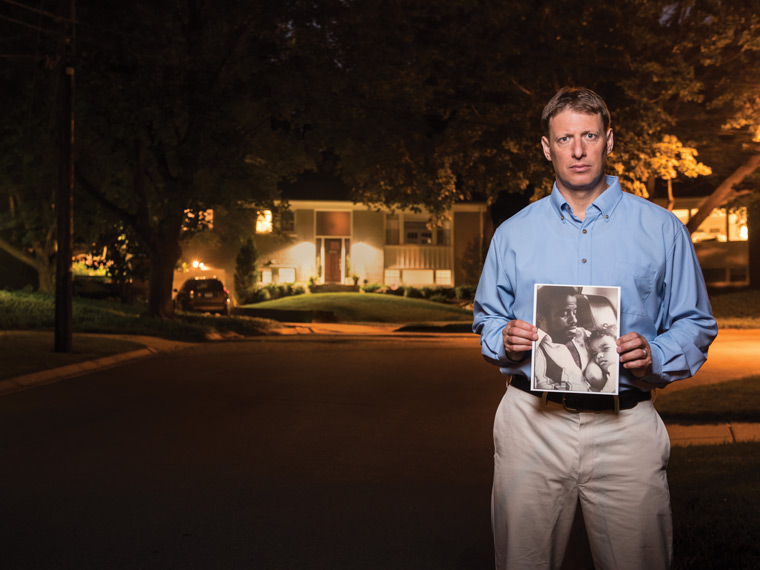After 30 minutes holding a silent receiver, the reality slowly sank in. The father of the young man, named Tee Barnaby, who had been killed in a police shooting wasn’t late to the other end of the phone line. He wasn’t coming.
It was the fall of 1994. I had graduated from Sarah Lawrence and finished a yearlong internship at The New Yorker. As I settled into an apartment in Boston, I fancied myself a writer.
The silent phone line forced me to frankly assess my clumsy but passionate research. Barnaby’s dad had cooled after several of my stumbling interviews. Then, a few days later, he was done. No failure has struck me more deeply before or since.
My pell-mell pursuit of what I perceived as justice and truth had raised the expectations of a vulnerable family, and then let them fall.
The complex story of Barnaby, killed by police in an all-too-familiar scenario, needed a professional, not a work in progress. I resolved to learn journalism as a trade, and I did in graduate school and for a decade as a newspaper reporter.
Then, more than 22 years after my first failed attempt, I called the young man’s father again. Soon, I was boarding a plane to Boston to see Big Tee, as everyone calls him.
Big Tee and I sat on couches in the living room as his partner Phelix made sandwiches in the adjoining kitchen. Her grief over their son’s death had been hardest late at night, she was saying. That’s when she drank liquor alone and dialed numbers, sometimes randomly, in the suburb where her son died. She would scream at whoever answered the phone, call them racists and murderers, and demand to know how they lived with themselves.
As she talked, Phelix stepped into the living room to explain how her Catholic faith eventually led her to forgiveness. After a lot of prayer, she realized her hardest feelings were for herself. When she finally gave in to the grief, she sobbed and sobbed, she said, and begged her son to forgive her. And then she forgave the cops.
“I had to,” she said. “The anger was killing me.”
When Phelix mentions forgiveness for the officers who shot her son, she carefully qualifies it. It’s “spiritual,” for their souls, she said. In the here and now, she’s not satisfied. Justice hasn’t been done.
As I dug into the facts and spoke to witnesses, forensics experts, and police, and as I found more information and additional sources came forward, the evidence piled up against the police. The officers first said they shot Tee to save their own lives, but the autopsy proved he was shot in the back, so the police changed their story. Tee had been driving in reverse, they said, sticking to the increasingly improbable story of self-defense. An official review in 1994 called the shooting justified.
The official review has always bothered me both for its contradictions and its predictability. Isn’t it how almost every review ends? Since when was this okay? In my search to understand how and why, I reached back. I read oral histories of segregation and violence and lynching. I studied some of the earliest statutes on slavery in Virginia. In 1705, a new law from the Virginia House of Burgesses allowed slave owners to discipline slaves, and if “any slave shall happen to be killed in such correction … the master shall be free of all punishment … as if such accident never happened.”
As if it never happened …
When I shared the law’s language with Big Tee and Phelix, they immediately related to it. The 1994 review had basically come to the same conclusion. It’s as if their son’s life hadn’t even existed.
For several years, I taught journalism a few days a week as an adjunct instructor, which was wonderful for the chance to interact with young writers and to break down what I knew of the intricacies of the crafts of reporting and writing. But it also made me uncomfortable, because I found myself speaking as if I knew how to handle every situation, how to wrangle every story, and that’s just not true.
My best and most vital work has been out over the edge of my own experience and abilities—not too far, but not back in the safe zone either. That uncertain space means the most to me, where I wonder if the job at hand is simply too big for me, if I’ll end up like I did on that dreadful day back in 1994, waiting with a sinking feeling on one end of a silent phone. That risky zone is where you meet the need of the moment, although you may be nervous and overextended. It’s where you can tell the story that must be told.
Written by Robert Struckman ’94
Photo by Mike Morgan
Robert Struckman is a writer in Washington, DC, who works for the AFL-CIO. A native of Billings, Montana, Struckman has researched and written on a wide range of subjects. He’s writing his first nonfiction book about the long shadow of police violence. Struckman still keeps a photo of Tee Barnaby being cradled by his father, Big Tee.
